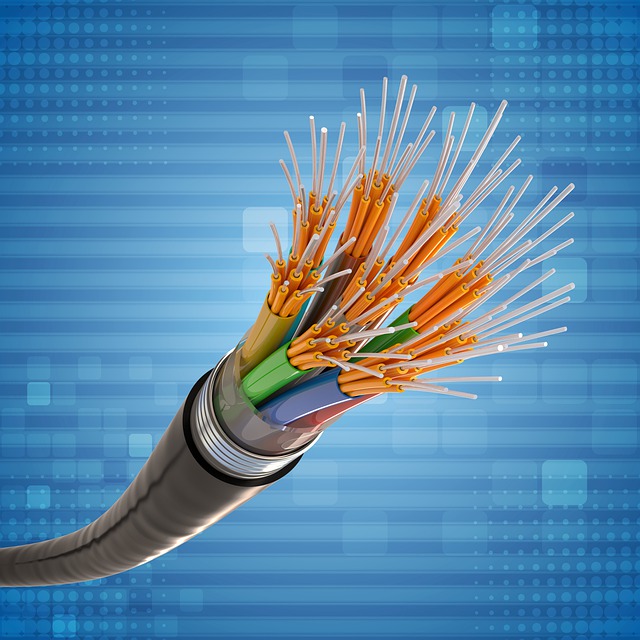Adding a VPN to your smart TV can bring various advantages, such as avoiding ISP throttling, keeping your streaming activities private, and accessing geo-restricted content. Setting up a VPN on your smart TV is a simple process that can be done in just a few steps.
Virtual Private Networks and Smart TVs
Virtual private networks can be beneficial in various scenarios. However, most smart TVs are not initially compatible with VPNs. Nevertheless, it is possible to connect pretty much any smart TV to a VPN. Even if your TV is not a smart TV, you may still use a VPN with it, as long as you have the necessary equipment.
Smart TV capability extends to VPN connection
Smart TV functionality allows for connectivity to a VPN service.
There are several methods available for setting up a VPN connection for your TV. The choice you make will rely on personal preference, technical expertise, budget, and available equipment. We will outline various ways to establish a VPN on a TV and discuss the reasons for doing so.
which path you decide to take
which path you decide to follow
budget
budget
Why use a VPN on a TV?
Today's TVs are versatile devices that go beyond just watching traditional television. They also allow you to stream video content on demand from various streaming providers.
TVs
TVs
Streaming providers
Streaming providers
The multitude of streaming content available today may seem vast, but some content is restricted by region. If you're seeking more variety or specific programming that's not accessible in your country, you can employ a VPN on your smart TV to mask your location and gain access to a wide range of content.
If you are located in the UK but want to watch content only available in the US, you can connect your VPN to your smart TV and link to a US server. This will change your IP address to a US one, tricking the streaming service into thinking you are in the US and granting access to American programming. Before doing this, check with your streaming service to ensure using a VPN is allowed under its terms of service to avoid any disruptions to your account.
Using a VPN on your smart TV can help protect your privacy by preventing your ISP from monitoring your viewing habits or tracking your internet activity. Even if accessing geo-restricted video content is not a priority, it's still a good idea to utilize a VPN on your TV for added security.
When you connect to a VPN, you create a secure connection between your device and the internet through a VPN server in a distant location. This ensures that all the internet traffic you send over that encrypted VPN connection is shielded from any entity trying to monitor your online activities, including your Internet Service Provider (ISP). By using a VPN with your TV and connecting to a VPN server, your ISP won't be able to monitor what you're watching or understand any internet activity going to or from your TV.
Guide on setting up a VPN on a smart TV
Like any software or service, your first step is to consider what is compatible with your operating system. The most VPN-friendly smart TV operating systems include Amazon Fire TV, Google's Android TV, and Google TV platforms. However, if you use Roku, Apple TV, or the native operating systems of Samsung, Vizio, LG, or any other platform, there are still options available.
Here are several practical methods for connecting a VPN to your smart TV.
If you own a Fire TV
If you own one of Amazon's new Fire TVs, you can now download your VPN directly to the TV, as long as your VPN offers a Fire TV app. It's important to choose a VPN that is compatible with Amazon Fire devices, such as Surfshark, NordVPN, and ExpressVPN. If you are not currently subscribed to any of these VPN providers, you can sign up and download the app from the Amazon Appstore. All three providers offer a 30-day money-back guarantee, allowing you to try each one risk-free and determine which works best for you.
Amazon's latest Fire TV models
Amazon has introduced new Fire TVs
VPN now has a Fire TV application
VPN has a Fire TV application
Surfshark
Surfshark
NordVPN
NordVPN
ExpressVPN
ExpressVPN
When you have installed the app and logged into your VPN account on your Amazon Fire TV, you can establish a connection with a VPN server. While connected to the VPN on your Fire TV, you can access blocked streaming content and keep your viewing history private from your ISP.
If you own an Android/Google TV
Similarly, if your smart TV operates on Google's Android system, you can install a VPN on your TV by getting the VPN app from the Play Store directly onto your TV. Despite Google rebranding Android TV to Google TV for a more polished and user-friendly experience, you will still have access to Android apps in the Play Store even if you switch to Google TV, as it still uses Android as its foundation.
Google TV
Google TV
What you need to do first is to acquire a VPN that is compatible with Android if you don't already have one. After that, go to the Play Store on your Google TV, search for your VPN provider's app, and download it. Once the VPN app is downloaded on your TV, log in and connect to a VPN server.
VPN for Android Devices
VPN for Android users
If you wish to access US-only content, you will need to connect to a VPN server located in the US. Similarly, for content restricted to the UK, connect to a server in the UK. To ensure privacy and prevent monitoring of your viewing habits by your ISP or others, it is advisable to connect to a VPN server closest to your current location for optimal connection speeds.
A potential way to include VPN on a smart TV which may be more challenging and costly
If your television does not operate on the Android system, one way to set up a VPN on your smart TV is by configuring a VPN connection through a router. However, not all routers support VPN connections, so you may need to buy a compatible router, which can be expensive for one that supports smooth streaming. Even if your router is compatible, installing a VPN on it may not be straightforward and could risk damaging the router or voiding its warranty if done incorrectly.
VPN Connection Through a Router
VPN connection through a router
The best VPN providers offer detailed instructions for setting up routers with VPN compatibility for various router models. Their support staff can also assist you during the process. If you prefer not to install it yourself, some VPNs collaborate with a company called FlashRouters to sell preconfigured VPN routers. However, be aware that purchasing a preconfigured router may cost an additional $100 to $150 compared to retail prices.
When your VPN is set up on your router and properly configured, you can connect to a VPN server via your router's dashboard. Make sure your TV is linked to the VPN router to use the VPN connection and maintain privacy while watching content.
Read more: The Pros and Cons of Using a VPN on a Router
Learn more:
The Advantages and Disadvantages of Using a VPN on a Router
The Advantages and Disadvantages of Using a VPN on a Router
How to Share Your VPN with Your Smart TV
Markdown:
How to Share Your VPN with Your Smart TV
If you do not own a Google TV or a VPN-compatible router and do not plan to buy either, you can utilize the devices you already have to share your VPN connection with your smart TV.
You can achieve this by connecting your computer to your smart TV using an ethernet cable. This method might involve using additional adapters depending on the devices you have. Once you've established the connection between your TV and computer, just connect to a VPN server on your computer, and you're good to go. Although not the most convenient solution, a wired connection is an option.
The easiest and most convenient method is to utilize your laptop or desktop to create a Wi-Fi hotspot and link your TV to your computer wirelessly.
To use a VPN on MacOS, you will need to manually set it up using either the L2TP or IKEv2 VPN protocol. You then connect your Mac to your router with an ethernet cable to share the VPN connection over Wi-Fi. Specific instructions for setting up the VPN service on your Mac can be obtained from your VPN provider.
On Windows:
On Windows
– Go to Settings -> Network & Internet -> Mobile hotspot.
– Click on Edit to customize a network name and password for your hotspot.
– Choose Wi-Fi under Share my internet connection over.
– Activate the Mobile hotspot to the On position under Share my internet connection with other devices.
– Connect your smart TV to the newly created hotspot as you would connect to any other Wi-Fi network and then connect to your VPN on your PC.
Settings
Network & Internet
Mobile hotspot
Edit
Wi-Fi
Share my internet connection over
On
How to share your internet connection with other devices
On Mac:
For Mac:
– Connect your Mac to your Wi-Fi router using an Ethernet cable (use an adapter if your Mac doesn't have an Ethernet port).
– Go to System Preferences -> Sharing.
– Click on Internet Sharing in the left panel.
– Select your VPN connection from the Share your connection from dropdown.
– In the To computers using box, check Wi-Fi.
– Click on Wi-Fi Options in the bottom-right corner.
– Set a network name and password for your hotspot, select WPA2 Personal in the Security field and click OK.
– Click on the box next to Internet Sharing in the left panel and click Start in the dialogue box that pops up.
– Connect your TV to the Wi-Fi hotspot you just created as you would any other Wi-Fi network and connect to your VPN on your Mac.
System Preferences
Sharing
Internet Sharing
Share your connection from
For use by computers
Wi-Fi
Wi-Fi Options
WPA2 Personal
Security
OK
Internet Sharing
Start
The method of adding a VPN without a smart TV
Even if you do not own a smart TV, you can still benefit by setting up a VPN on it if you connect a streaming device such as a Roku, Amazon Firestick, or Google Chromecast to the TV. These innovative little gadgets essentially transform any TV with an HDMI port into a smart TV, all at a much more affordable price than buying a smart TV.
Streaming device
Streaming Device
Roku
Roku
Amazon Firestick
Amazon Firestick
Basically, you can follow the methods above to connect a VPN to your TV. If you choose Chromecast with Google TV or Amazon Firestick, you can download the VPN from the Play Store or Amazon Appstore, respectively. The only difference is that you'll need to use your streaming device's interface to connect to the VPN instead of directly through your TV interface. You'll still benefit from privacy and access to blocked content by using a VPN in this way, but only for the content you watch through your streaming device.
Chromecast with Google TV
Chromecast with Google TV
Streaming devices like those from Roku and other brands can transform a regular TV into a smart TV.
Streaming devices such as those from Roku and other brands can transform a regular TV into a smart TV.
Sarah Tew/CNET
Next steps for setting up a VPN on your smart TV
Setting up a VPN on your smart TV requires careful consideration. You should prioritize a VPN that offers fast speeds for smooth streaming without buffering. Additionally, make sure the VPN has servers in the countries where you want to access content.
VPN with high-speed performance
VPN service with high-speed connections
If you are a Google TV user and looking to install a VPN app from the Play Store, the VPN should be compatible with Android. Similarly, the VPN must be Amazon Fire TV-compatible if you plan on using it directly on your Amazon Fire TV.
Android-compatible
Android-compatible
Amazon Fire TV-compatible
Amazon Fire TV-compatible
If you prefer using a VPN with your router to connect your TV, it is crucial to ensure that your VPN service supports router connections and offers setup guides for your specific router. Additionally, having access to knowledgeable technical support can be helpful in case you encounter any issues during setup.
Ensure your VPN offers the privacy protections needed to safeguard your viewing habits from prying eyes.
The VPN services we suggest for meeting all your needs include ExpressVPN, Surfshark, and NordVPN. Any of these options are suitable for unblocking content and ensuring privacy on your smart TV.
ExpressVPN
ExpressVPN
Surfshark
Surfshark
NordVPN
NordVPN


























